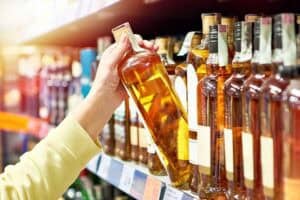SAB says it has noticed an increase of less than 1% since the improvements in macroeconomies.

The South African alcohol industry remains hopeful that sales will pick up after inflation recently cooled down and the repo rate was cut.
Previously, inflation and the repo rate were thought to have discouraged South Africans from buying as much alcohol.
However, the South African Breweries (SAB) says they have noticed an increase of less than 1% since the improvements in macroeconomies.
Light at the end of the tunnel for consumers
SAB’s chief executive officer Richard Rivett-Carnac told The Citizen that the slight increase can mean that things are getting better for consumers, however, they are still prioritising necessities.
He was attending the State of Beer Economy on Thursday at the Caledon Farm Research & Development Facility in the Western Cape.
“Things will get better for the industry once there is a substantial uptick in consumer’s purchasing power.”
When it comes to whether the price of beer should be kept below inflation, Rivett-Carnac said because inflation is not directly affected by policy instruments, therefore prices above inflation are something both producers and consumers will face irrespective.
ALSO READ: ‘Unpredictable excise taxes’ burden SA beer industry, says SAB
What can be managed
He added that what can be managed is the excise tax environment.
“The recently released Oxford Economics report discussing the interaction between inflation and excise taxes gives us an understanding of how different countries like Canada and Australia tend to moderate excise tax adjustments during periods of high inflation because in general, the purchasing power of consumers tends to be constrained during these periods.”
Beer tax to be increased?
He said they expect beer tax to be increased next year when the minister of finance tables the budget, as it is stated in the Excise Policy of 2014 and the Customs and Excise Act that excise taxes will be increased annually.
“Based on the Fiscal Framework, no tax instruments are actually increased during the tabling of the Medium-Term Budget Policy Statement on 30 October.”
Rivett-Carnac added that the beer industry continues to recommend that the scope of the medium-term budget be extended to provide them with a 3-year outlook of the excise adjustment as this would provide them with considerable tax certainty.
ALSO READ: ‘Look at the money you get out of it’- Thoko Didiza wants youth to get into farming
Benefits of the industry creating jobs
“The government will always have to strike a balance between ensuring fiscal sustainability while trying to grow the economy and creating jobs. Both of which the beer industry is also concerned about.”
However, Rivett-Carnac raised a point of concern around the predominantly discretionary approach used to implement excise taxes versus a structured tax policy approach that is focused on enforcing the excise policy guidelines, which says that excise taxes should be increased in line with projected inflation.
“This has happened only twice over the last 11 years. That’s only 18% of the time. What would be mutually beneficial would in fact be a multi-year excise tax approach- say over three years, giving the beer industry a greater degree of tax certainty and increasing its ability to plan,” he said.
He is of the view that this in turn would encourage investment and jobs and reduce the risk of sudden shocks to the industry.
Government would also benefit through the increased predictability of the amount of revenue it will gain from the excise tax instrument by having a three-year outlook of the tax increases.
Industry’s contribution to economy
He said beer plays an important role when it comes to the agriculture economy, the same as how agriculture plays a vital role in the beer industry. 95% of the raw materials used to make beer are sourced locally.
Rivett-Carnac added beer as a critical driver of economic growth. The alcohol industry makes a positive contribution to the industry.
ALSO READ: Didiza hails Agricultural sector’s contribution to economy in second quarter
Agriculture development
Minister of Agriculture John Steenhuisen also acknowledged the important role played by the beer industry in agriculture development.
He said the role the industry plays when it comes to investing in local farmers, particularly emerging farmers, directly influences agriculture’s ability to deliver impressive harvests year after year.
“Beyond crops, this investment has been crucial in job creation, economic growth, and building a more sustainable future for our nation.”
Agriculture expansions
Hops are an important ingredient for beer, and there are only a few farms where these are grown. The main hops farm is in George, Western Cape, where there are at least seven private farmers.
South Africa’s hop-growing industry contributes to the local economy, providing seasonal employment for at least 1,000 people and generating R90 million annually.
Alcohol abuse culture
Charlene Louw, CEO of the Beer Association of South Africa (Basa) touched on the need to raise awareness for the country’s alcohol abuse culture.
She said it goes without saying that South Africans have an abusive drinking culture, which is why partnerships between the Department of Education and the Department of Social Development are necessary.
Basa has partnered with the two departments to educate learners in high school about the dangers of underage drinking.
“As October is transport month, drivers should be reminded to drink responsibly, without being under the influence.”
ALSO READ: Bearing fruit beyond beer: SAB turns lemons into limes
The Country’s GDP
In the second quarter of 2024, the country’s gross domestic product increased by 0.4% after 0.0% growth in the first quarter of 2024.
The divisions that made the largest positive contributions are motor vehicles, parts and accessories and other transport equipment, food and beverages, basic iron and steel, non-ferrous metal products, metal products and machinery.
NOW READ: SAB restructure could lead to around 40 retrenchments






